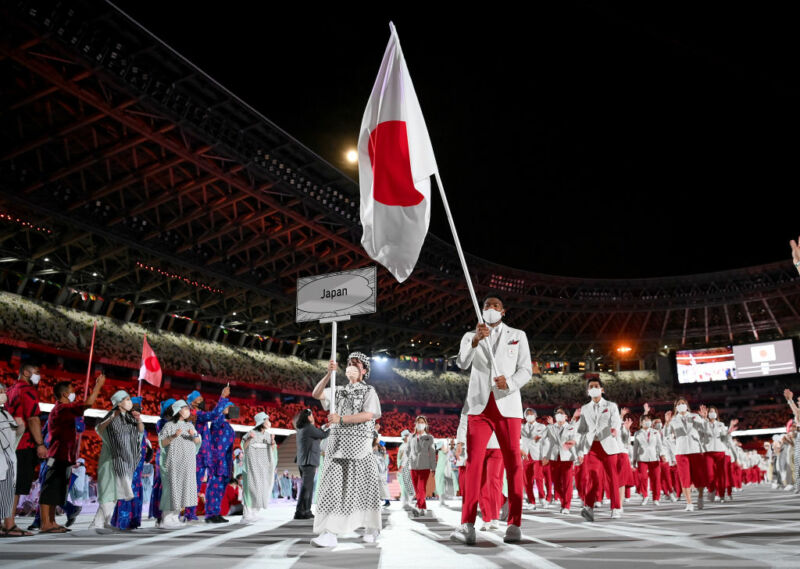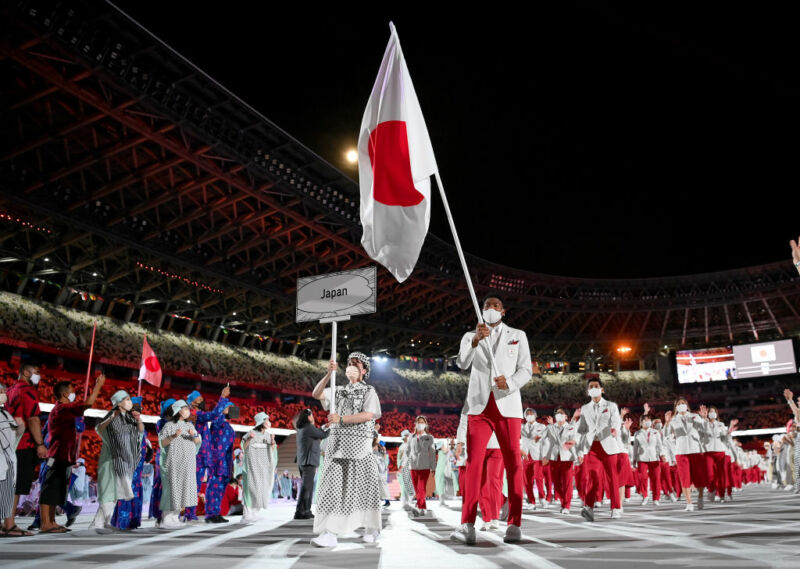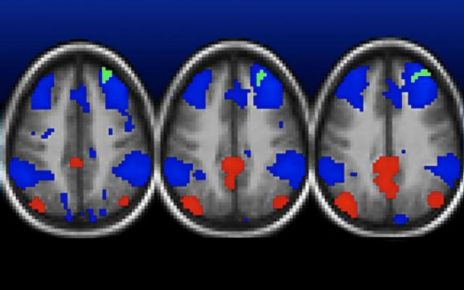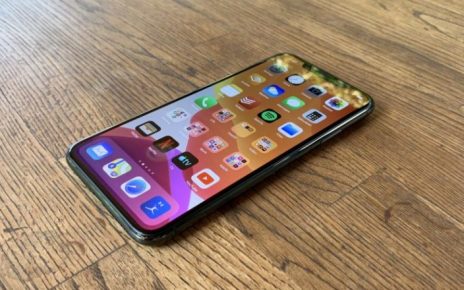
Enlarge / Flag bearers Yui Susaki and Rui Hachimura of Team Japan lead their team out during the Opening Ceremony of the Tokyo 2020 Olympic Games at Olympic Stadium on July 23, 2021 in Tokyo, Japan. (credit: Matthias Hangst | Getty Images)
Ten days before the opening ceremony of the Tokyo Olympics, Kara Lawson, the coach of the United States women’s 3×3 basketball team, gave a press conference. The sport is new to the Olympics this year, and Lawson, a former WNBA player and coach at Duke University, told the dozen or so reporters participating online what she liked about it—the game is faster-paced, Lawson said, and more unpredictable than the five-on-five version. But during a global pandemic, Lawson added, the health of her players was her number one priority. “We’re obviously tested daily. I’m actually quarantined in my room right now,” Lawson said. “We’re masked all the time … a positive test at this juncture is hard for any team getting ready to go to Tokyo. We’re focused on doing our part, not just so we can have a good competition, but we definitely feel a responsibility to fellow human beings to be smart about eliminating transmission of the disease worldwide.”
Less than a week later, one of Lawson’s players—Katie Lou Samuelson, a power forward for the Seattle Storm—announced on Instagram that she had tested positive for Covid-19 and wouldn’t be able to go to Tokyo. Fast-paced, maybe, but not exactly unpredictable. As the 2020 Tokyo Games get underway, Samuelson is one of 91 people either in Tokyo for the Olympics or who were hoping to go who’ve tested positive for the disease, including US tennis player Coco Gauf, a Czech beach volleyball player, two South African soccer players, and so on.





